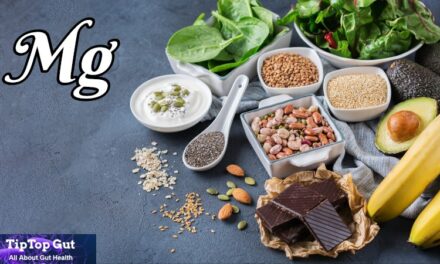Solanum Lycopersicum, a tomato, is a fruit from South America and almost found everywhere in the world. It comes from the nightshade plant family and is now widely grown in most parts of the world. It is technically a fruit, but it can be prepared and eaten as a vegetable. A tomato contains approximately 95% water, 4% carbohydrates, and less than 1 % of fat and protein. Tomatoes have moderate amounts of vitamin C and are low in calories.
When touched, itching the skin is a form of allergic contact dermatitis. Oral allergy syndrome – symptoms generally include mouth itching and a lump of lips and tongue. Patients allergic to grass pollen can also describe symptoms of an oral allergy syndrome to tomatoes. Here we’ll discuss what are the symptoms of tomato intolerance.
So don’t worry; this is not a tomato allergy but across-reactivity of the proteins to the lawn or grass pollen. Treatment is just avoiding it. Other foods in the same order are kiwi, melon, peach, and celery. Anaphylaxis -symptoms that occur are hives, coughing, wheezing, swelling, diarrhea, vomiting, and low blood pressure.
Tomatoes add umami to cooking. They can be used raw or cooked in salads, sauces, salads, and drinks. A wide variety of processed foods contain tomatoes and tomato products.
Do You Ever Feel Tired After Eating Tomatoes?
Many people have these symptoms after eating tomatoes. Some people also experience rashes. These symptoms are a sign of a tomato allergy. It is essential to distinguish between an allergy or intolerance. An allergy is a condition that causes symptoms when you eat tomatoes. An allergic reaction can usually be caused by brief contact with the tomato.
However, the symptoms of intolerance can take a while to manifest. You may still experience intolerance even if symptoms do not appear until several days after eating the tomato. The cause of tomato intolerance is in the intestines.
Sometimes it can take several days for the tomato there. What is a tomato allergy? How does it differ from tomato intolerance? This article will explain a tomato allergy and how to treat it if you’re afflicted.
What is the Difference Between An Allergy and an Intolerance?
Allergy – Symptoms typically appear quickly after eating any trigger food. The effects of eating trigger foods can sometimes be life-threatening and dangerous. Tomato Allergy and related Symptoms
Most people are intolerant to tomatoes rather than have a tomato allergy. Severe reactions to tomatoes are unusual or rare but can cause anaphylactic shock and death. Many people with a known tomato allergy or intolerance can eat well-cooked tomatoes.
Intolerance- The amount of trigger food consumed will usually determine the severity of an illness. A tablespoon of tomato sauce may not make you sick, but a full-blown spaghetti dinner will. You are more likely to get sick if you eat more trigger foods.
Read More:
Do Tomatoes Cause Inflammation in the Gut? Interesting Facts May Shock You!
What Are the Symptoms of Tomato Intolerance?
Sometimes, intolerance symptoms can be very similar to those of a tomato allergy. The time that symptoms occur is a big difference. For severe symptoms, it is enough to have only a short contact with the skin.
The first signs of tomato intolerance usually show up much later than in the case of other allergies. Because intolerance occurs in the digestive system, this is why the symptoms usually appear later. You may feel discomfort for hours or even days.
Flatulence, diarrhea, and inexplicable abdominal pain are the most common symptoms of tomato intolerance. Sometimes, there may be skin rashes and reddening.
It can take many hours or even days to feel the effects of the trigger food.
- Sore throat
- Temporarily losing one’s voice
- Night sweats
- Fever
- Sinus congestion
- A common illness but not contagious.
Permanent tonsil swelling can occur in cases of trigger food consumption that has been intermittently sustained over a lifetime.
- Acid reflux Disease (GERD)
- Leg cramps/charlie horse
- Toxin intolerance in tomatoes
As mentioned above, an intolerance to tomatoes can result from a problem or reaction in the digestive system.
Read More:
Are Cooked Tomatoes OK for IBS? Shocking Facts Exposed (2022)

Fatigue and Tiredness Can also Indicate Intolerance to Tomatoes?
Sore throat and headaches are also common symptoms. Some sufferers may experience excessive sweating in rare cases. The body’s defense reaction increases perspiration.
A Few Things can Cause You to React When Tomatoes are Involved
Chronic conditions include irritable bowel syndrome, chrons, or other gastrointestinal issues. This can lead to a greater tolerance for certain foods, such as tomatoes. Having a lack of protein-digesting enzymes in your digestive tract. Sensitivity to certain additives used in tomato product production. It’s not the tomatoes. Some things like sulfites can be used to preserve the tomato.
Undiagnosed histamine intolerance. High levels of histamines in tomato products can lead to an increase in intolerance. The tomatoes may be the problem, even if you’re not aware. You may also experience GORD (gastroesophageal reflux disorder) if you already suffer. Eating tomatoes can worsen this condition. This can lead to heartburn, cramping, reflux, and other digestive problems.
Test Tomato Intolerance
Are you concerned that you might have a tomato intolerance? This is a classic sign that other incompatible foods don’t trigger. You may have enough symptoms to suspect that you are experiencing tomato intolerance. Talk to your doctor about your symptoms.
An intolerance can be tested in different ways. This is done by many doctors using a prick test. A prick test can be used to check for allergies. You apply the allergen to your skin, then insert a needle prick into the skin.
The elimination diet is another way to diagnose intolerance.
Are you concerned that tomatoes are causing you to react inexplicably? Eliminate tomatoes from your diet. Are your symptoms going away once you have stopped eating tomatoes? Then you can be sure that your symptoms are resolved. You must adhere to the elimination diet. One exception could lead to a false result.
Symptoms of intolerance may not appear until days after the consumption. Even if you eat only a tiny tomato, symptoms may not appear until several days later. It can then be challenging to identify the source of symptoms.
A blood test is the best way to determine if you have an intolerance. You can have a blood test done at your doctor or online. The doctor may take your blood, or you can do it yourself. Your blood will be tested for antibodies. You can use the antibodies to determine if you have a food intolerance.
Read More:
Do Tomatoes Cause Leaky Gut? Know the Truth (2022)
Tomato and Allergic reaction Avoidance Tips
- Avoid soups that are canned, prepared in restaurants, or made by others without knowing about your allergic reaction. Many soups use tomato products to add flavor and consistency.
- Take extreme care when ordering beef dishes. These meals often contain tomato or tomato products that enhance the flavor of sauces and gravies. It May cause higher tomato allergies.
- Order garlic and white wine sauce or Alfredo for any tomato sauce dish in Italian restaurants. A mild pepper sauce is a great way to make pasta sauce at home that tastes similar to tomato sauce. This sauce is excellent for making cabbage rolls with ground beef. To thin the sauce, you can add a bit of water.
- To replace salsa, mash avocado and add salt to make a tortilla chip dip.
- Red meats that you haven’t prepared yourself should be eaten with caution.
Read More:
Biotics 8 Review: SCAM or A Legit Probiotic for Men?
If Tomatoes are Eliminated, Essential Nutrients Must be Replaced!
To maintain nutrient balance, it is essential to include other foods in a short-term or long-term diet. Here are some great tomato alternatives.
- Beta carotene
- Sweet potato, carrots, kale, spinach, collards, Swiss chard, pak choi, butternut squash, pumpkin, cos lettuce, romaine lettuce, mango, dried apricots, prunes, peaches, melon, red peppers, tuna fish, mackerel, butter.
- Vitamin C
- Grapefruit, mango, papaya, and pineapple.
- Potassium
- Dried apricots and salmon, mackerel tuna, salmon, mackerel monkfish, white beans, lentils, kidney beans, avocado butternut squash, spinach mushrooms, bananas potatoes
- Vitamin K1
- Turnip greens, spinach, collards, swiss chard, kale, spinach, collards, swiss cheese, parsley, romaine lettuce, green leaf lettuces, brussels sprouts.
- Folate (Vitamin B9)
- Lemons, bananas, melons, spinach, broccoli, lettuce, beans, peas, and lentils.
FAQs about the Symptoms of Tomato Intolerance
What is the best way to find out if you have an intolerance for tomatoes?
Symptoms and signs of a tomato allergy
- Skin rash, eczema, or hives (urticaria).
- You may experience abdominal cramps, nausea, or vomiting.
- Itching sensation in the throat.
- Coughing, wheezing, or running nose.
- Angioedema is swelling of the throat, face, tongue, and mouth (angioedema).
- Anaphylaxis (very rare)
Is it possible to have an intolerance to tomatoes?
Many people have an intolerance to tomatoes. Although severe reactions to tomatoes are rare or uncommon, they can lead to anaphylactic shock or death. Many people with a tomato allergy or intolerance can tolerate tomatoes well, even with severe reactions.
What makes me feel strange after eating tomatoes?
According to Food Intolerance Diagnostics, they contain fructose. Some people may have fructose malabsorption or fructose intolerance. Poor fructose absorption is believed to be one reason tomatoes can cause diarrhea.
Are you allergic to tomatoes or have symptoms of tomato allergies?
Oral allergy syndrome and tomato allergies. Although tomatoes may seem unlikely to cause food allergies, you can still develop an allergy later in life to them. Even if you have been eating red sauce for years, you can develop an allergy to tomatoes.
Can tomatoes cause digestive problems or tomato allergy symptoms?
As our elders often remind us, excessive consumption of tomatoes can cause serious health problems. Excessive consumption of tomatoes can lead to serious health problems, including digestive issues, diarrhea, kidney problems, and body aches.
What makes my stomach hurt or an oral allergy syndrome after I eat tomato sauce?
Acidic foods like tomato sauce and citrus fruits (e.g., grapefruit, limes, and oranges) can cause stomach irritations and other digestive problems. Carbonated beverages can also be acidic, as many people don’t know.
Read More:
Best Over the Counter Probiotic for Gut Health: Easy Guide 2022
Is Miso Good for Gut Health? 4 Reasons Why Miso is the Best for Digestive Health
Do Tomatoes Cause Gas and Bloating? Let’s Reveal the Truth! 2022
Do Tomatoes Cause Acid Reflux? True OR False Decide it Now 2022
Best Probiotic for Vaginal and Gut Health: The Best Guide 2022
Scientific Studies and References
At TipTop Gut, we rely on peer-reviewed studies, academic research institutions, and medical associations. We avoid using tertiary references.
- DailyMed: “Allergies Nightshades”
- American Academy of Family Physicians: “Food Allergies”
- Asero RR, et al. (2010). Airborne allergy to tomato proteins. DOI:
10.1111/j.1398-9995.2010.02443.x - Cleveland Clinic: “Food Intolerance”
- Mayo Clinic: “Food allergy vs. food intolerance: What’s the difference?”
- Reche MM, et al. (2001). Tomato allergy in children and young adults: cross-reactivity with latex and potato. DOI:
10.1034/j.1398-9995.2001.00279.x - Zacharisen MC, et al. (2002). Severe tomato allergy.
ncbi.nlm.nih.gov/pubmed/12001794 - Włodarczyk K, Smolińska B, Majak I. Tomato Allergy: The Characterization of the Selected Allergens and Antioxidants of Tomato (Solanum lycopersicum)-A Review. Antioxidants (Basel). 2022;11(4):644. Published 2022 Mar 28. doi:10.3390/antiox11040644

















